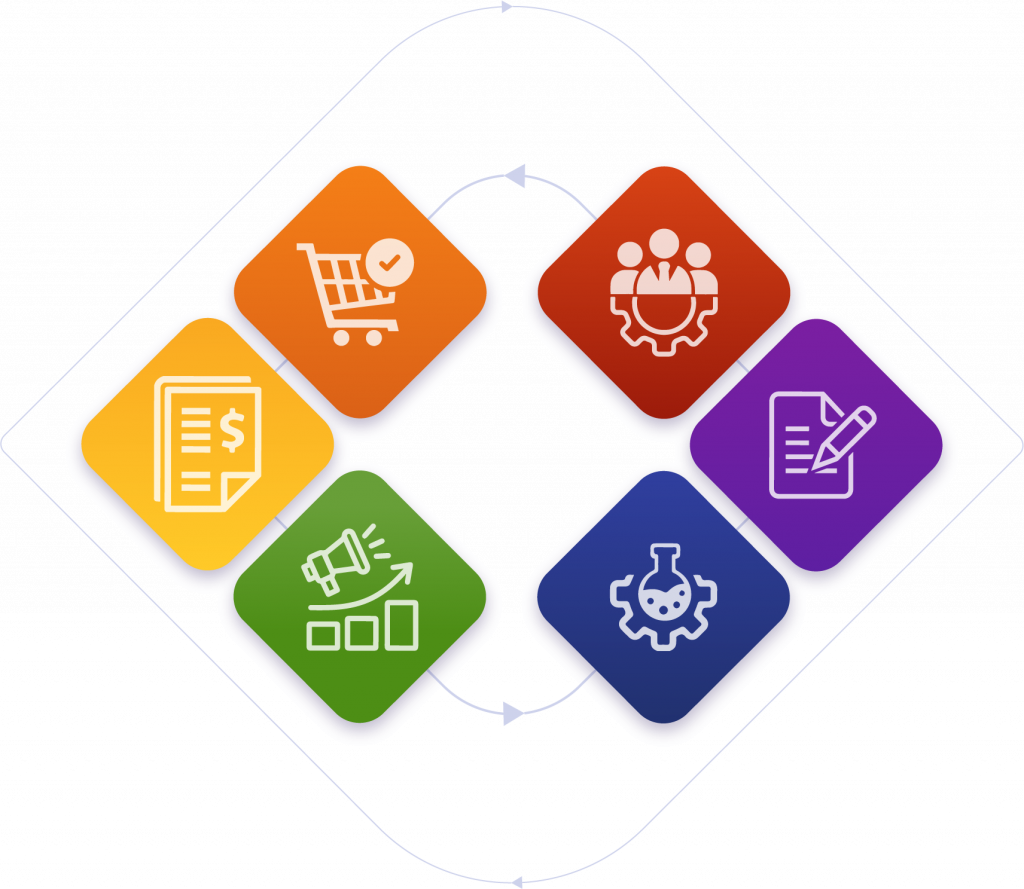-
+34 658 102 886
- contact@calacataservices.com
Changer la Langue
Streamline your business
ERP SOLUTIONS
- Accueil
- »
- Solutions ERP
ERP Features
Centralized Database
All data and information are stored in a single, unified database, ensuring consistency and easy access.
Process Automation
ERP systems automate routine tasks, reducing manual effort and minimizing errors.
Scalability
They can adapt to the changing needs of a business, accommodating growth and increased workload.
Security Management
Implement security protocols and monitoring measures to ensure the protection of sensitive company data.
Eliminate issues and focus on the success of your business
ERP Capabilities
Frequently Asked Questions About ERP
ERP FAQs
An ERP is a software system designed to integrate and centrally manage all processes and resources within a company. Its goal is to enhance operational efficiency, data visibility, and decision-making.
The advantages of an ERP include improved coordination between departments, process automation, more effective supply chain management, enhanced decision-making, and increased regulatory compliance.
Common functional modules of an ERP include accounting, human resource management, supply chain management, production management, sales and marketing management, customer relationship management (CRM), project management, warehouse management, and data analysis.
The decision to update an ERP system depends on various factors, and there is no one-size-fits-all answer. However, here are some common indicators that might suggest it's time to update your ERP system:
- Outdated Technology: If your ERP system is built on outdated technology that is no longer supported or if it's incompatible with new hardware and software, an update may be necessary.
- Business Growth or Changes: If your business has grown significantly or undergone structural changes, your existing ERP system might struggle to accommodate new requirements. An update can align the system with the current needs of the organization.
- Inefficiency and Slow Performance: If you notice a decline in system performance, frequent glitches, or if the ERP system is struggling to handle the increasing workload, it might be time for an upgrade.
- Compliance Requirements: Changes in industry regulations or compliance standards may necessitate updates to your ERP system to ensure that it meets the latest legal and regulatory requirements.
- Lack of Integration: If your ERP system does not effectively integrate with other essential business applications or if there are data silos hindering communication between departments, an update could improve integration and data flow.
- User Feedback: If users are consistently facing challenges, expressing dissatisfaction, or if there's a need for new features and functionalities, it might be worth considering an update to enhance user experience and satisfaction.
- Security Concerns: If your current ERP system is not equipped with the latest security features or if you've experienced security breaches, updating to a more secure version can help protect sensitive data.
- Cost Considerations: Analyze the cost of maintaining and patching your current system versus the cost of implementing a new ERP solution. Sometimes, an update can be more cost-effective in the long run.
Regularly reassessing your ERP system in light of these factors will help you determine when the right time for an update is for your specific business context.
Selecting an ERP system depends on your company's specific needs, size, industry, and budget. It's advisable to conduct a thorough assessment, consult experts, and consider customization, scalability, and user-friendliness.
Yes, many ERP solutions are designed for small businesses. They provide features tailored to the size and specific needs of the company.

